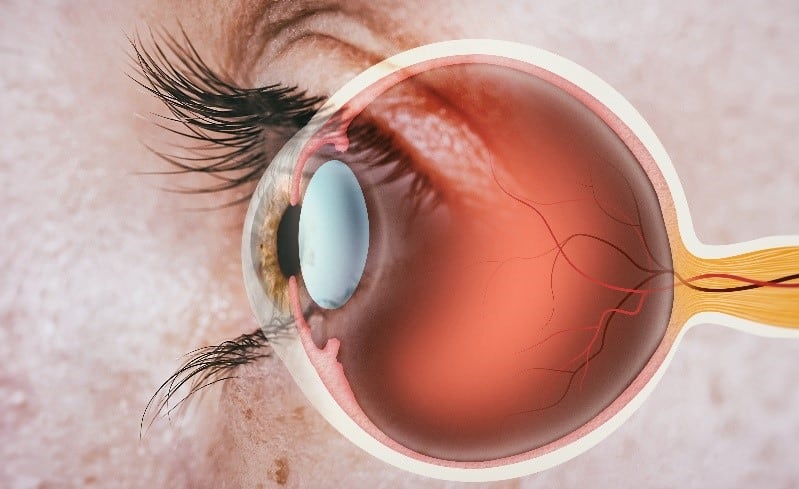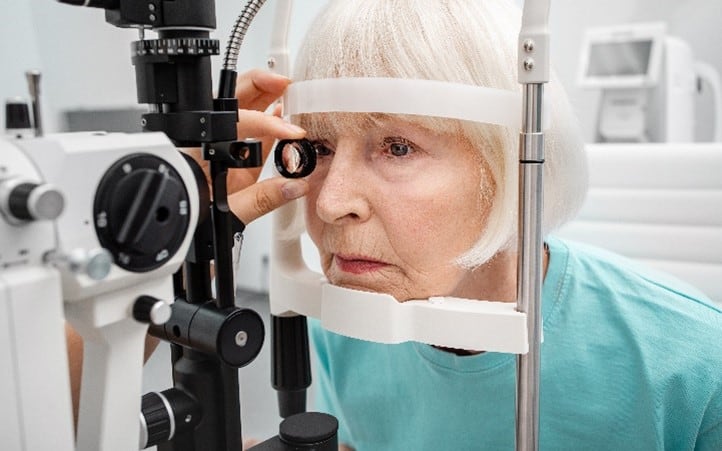Click here to resize type
Retina Specialist in West
Palm Beach & Jupiter, FL
The retina is the key component of the eye that enables sight. Maintaining the health of your retina is critical to protecting the longevity of your sight. The retina specialists at Mittleman Eye in West Palm Beach and Jupiter, FL are highly trained ophthalmologists with the expertise to diagnose and treat emerging problems.
What Is the Retina?

The retina is a membrane layer at the far back of the eyeball. It contains two types of photoreceptor cells: rods and cones. While the rods are useful for detecting motion and seeing in diminished light, the cones are useful for central vision and seeing colors. The retina receives light that passes through the cornea and lens and passes it along to the brain via the optic nerve. The visual cortex a portion of the brain that turns the incoming information into images.
Retinal Hazards
Not surprisingly, damage to the retina is a serious threat to your ability to see clearly, or see at all. Risks to this essential ocular structure include:

Retinal Tears
This condition can occur when the eye’s vitreous fluid shrinks in volume and begins to pull on the retinal membrane. A retinal tear may create sudden distortions in vision, such as flashing lights and shapes that appear to float.
Retinal Detachment
This occurs when fluid seeps under the retina, usually through a retinal tear, but sometimes as a result of diabetic retinopathy. The end result is that the retina becomes separated from the back of the eye, and normal vision is no longer possible. Eyesight can be permanently lost if retinal detachment is not immediately treated. Various surgical treatments exist, but a delay in seeking help will decrease the likelihood of success with these procedures.
Epiretinal Membrane Changes
Changes in the epiretinal membrane, the thin covering positioned on top of the retina. If this membrane begins to pull on the retina, blurred or distorted vision is the result.
Damage to the Macula
An injury or unusual friction between the retina and vitreous may create a defect in the center of the macula, known as a macular hole. In the case of macular degeneration, damage to the retina occurs when the center begins to deteriorate. This can create a central blind spot in the field of vision.
Retinitis Pigmentosa
Retinitis pigmentosais a genetic condition that causes progressive corneal damage, resulting in reduced peripheral and night vision.
Retinal Vein Occlusion
Retinal vein occlusion (RVO) is a blockage of the main retinal vein, or a branch vein. When this happens, blood and fluid back up near the center of the retina. This macular edema affects the retina’s ability to efficiently receive images, resulting in blurry vision.
In approximately one-third of cases, RVO can lead to a type of glaucoma known as neovascular glaucoma, which dramatically raises pressure in the eye and threatens your vision.
When pressure soars to dangerous levels within the eye, blood begins to leak from the capillaries, blocking light from reaching photoreceptors and partially obscuring vision. For some patients, this kind of hemorrhaging may happen once, but for others it can become a condition that persists for months or years. Treatment involves regular injections to reduce pressure within the eye.
Symptoms of a Retinal Condition
Potential symptoms you may notice if you have a retinal disorder include:
- Blurry central vision
- New floaters that appear in your field of vision
- Seeing flashes of light
- Reduced peripheral vision
- Decreasing ability to discern colors
Please schedule a comprehensive eye examination if you are experiencing these symptoms.
Why Seeing a Retinal Specialist Is So Important
A retina specialist has an in-depth understanding of retinal diseases and vitreoretinal medicine. After completing medical school and an ophthalmology residency, retinal specialists must undergo an additional year or two of vitreoretinal training. During this fellowship, they learn how to use the latest technology that allows them to identify and properly treat retinal conditions.
Schedule a Consultation for Retinal Disease Detection
If you would like to learn more about preventing and detecting retinal risks, we invite you to schedule a personal consultation with an experienced ophthalmologist at our West Palm Beach or Jupiter office by contacting Mittleman Eye today.
Retina FAQs
Why must my eyes be dilated when the doctor looks at my retina?

When your doctor shines a light on your eye, the pupil reflexively shrinks. Dilation drops ensure that the pupil stays large and open while the doctor looks at the retina at the back of the eye. Without dilation, your doctor may not be able to diagnose a potential problem. The good news is that pupil dilation does not typically cause pain (some patients may notice a light stinging) and wears off after a few hours. Your eyes may experience light sensitivity in the meantime.
What is the macula?
The macular is at the center of the retina and is responsible for processing your central vision. Problems that may affect the macula include age-related macular degeneration (AMD), macular hole and retinal vein occlusion. All these conditions can make your central vision much less clear.
Is it true that having diabetes can harm my retina?
If you have diabetes, you are at risk for diabetic retinopathy, as well as other related retinal conditions. The best way to prevent vision loss from diabetic retinopathy is to manage your blood sugar levels and undergo regular eye examinations to ensure that your eye health remains strong. The retinal specialists at Mittleman Eye have extensive experience treating patients with diabetic retinopathy.
Is it possible to replace my retina?
Although science has advanced to the point where the cornea can be transplanted, the same is not true of the retina. Your best and only practical choice for preserving your vision is to treat the retinal disease.
















